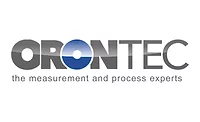AkzoNobel and BASF Announce Strategic Partnership

Image courtesy of AkzoNobel.
AkzoNobel is incorporating biomass-balanced (BMB) raw materials from BASF into its decorative paints production across Europe, the Middle East and Africa (EMEA), supporting both companies’ efforts to reduce Scope 3 emissions. The ingredients will be used without altering paint formulations or manufacturing processes, maintaining identical quality and performance with a minimum 5% reduction in product carbon footprint.
BASF’s approach replaces fossil-based feedstocks with renewable resources like bionaphtha and biomethane. These are integrated through a certified mass balance system, allowing AkzoNobel to use low-carbon acrylic binders—key components in its decorative paints.
“Integrating BASF’s BMB ingredients into our higher volume consumer products will help us achieve a significant overall impact in terms of carbon footprint reduction,” said Wijnand Bruinsma, director of sustainability at AkzoNobel. “Partnerships like this play a key role in making change happen quicker.”
The first upgraded product range using the reduced-CO₂ ingredients—Dulux Easycare—is expected to launch in Q2 2025 in the UK. AkzoNobel is also pursuing REDcert² certification for its European sites to support continued use of mass balance materials.
Dr. Jörg Niebergall, senior vice president, Dispersions Europe at BASF, added: “Through our broad portfolio of sustainable and low-carbon products, we’re enabling AkzoNobel to offer its customers products with a lower carbon footprint, supported by the right data and tools.”
Looking for a reprint of this article?
From high-res PDFs to custom plaques, order your copy today!







